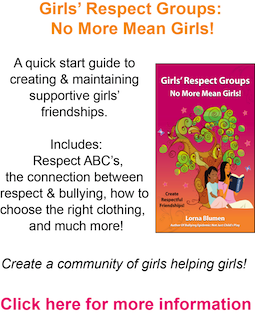
Sexting, Shame and Suicide
A shocking tale of sexual assault in the Digital Age
Rolling Stone Magazine, Sept 17, 2013
Rolling Stone Magazine’s recent article on the suicide of 15-yr-old Audrie Pott (“Sexting, Shame, and Suicide,” Sept 17, 2013) is (or should be) sobering. The mix of alcohol, hormones and social media can give you a hangover that lasts a lifetime. Some don’t survive. This year alone, the body count is too high: Audrie Pott, Italy’s Carolina Picchio, Canada’s Rehtaeh Parsons, and more. Same story, again and again. From Amanda Todd in 2012 back to Jessie Logan in 2008. Laws and legal punishments cannot compensate for the damage done to these kids, their families and friends. It’s too little, too late.
There is no rewind button, there is no way to repair the damage. These tragic, needless losses of young teens and the suffering caused to them and everyone around them will last forever. What we can do, however, is to take to heart the mistakes that were made and commit to action: we must update our knowledge and change our behavior to lessen (and eventually eliminate) the chance of these tragedies recurring.
The only solution is prevention, and prevention rests on adult shoulders. Adults must start when kids are young, setting boundaries for and demonstrating consistent leadership to kids. We must step in at the earliest signs of trouble and help kids get back on the right track. Here are a few tips, from my 20 years’ experience in kids’ bullying prevention and our Girls’ Respect Groups program (used in Canada, the US, and 80 countries worldwide).
Adult guidance for boys. Adults must teach boys that “No means no” – at the kindergarten level, at 6th grade, high school, and college. And if the person you’re with can’t say no, that means no, too. Mistakes will be made, but if we start this conversation early, the mistakes will be “a kindergarten boy kissed a kindergarten girl and she got startled” and not “high school boys drew on the naked genitals of a semi-conscious drunk girl.” Kids need to understand clearly the difference between a prank and an activity that will leave the victim damaged for life.
Adult guidance about romance and technology. Parents, teachers, and schools need to talk to kids about the dangers of romance and technology – and specifically sexting – long before you think they’re “ready.” Kids well under 10 are texting pictures of their naked body parts to kids they hardly know. Even if you think your child couldn’t possibly be thinking about sexting, I guarantee you he or she knows someone who’s doing it. Kids need to know that their bodies are not party favors.
Girls need to have the self-control and self-respect to resist taking and sending naked photos of themselves. When you send a photo, you are counting on everybody who sees that photo to have emotional and behavioral self-control. Forever. What are the odds of that?
Adults can foster self-respect and respect for others in girls and boys. Keep talking to your teens, even when they don’t look like they’re listening. As teens pull away from adult guidance, choosing the right friends can keep them (mostly) out of trouble or put them in harm’s way. Having the support of friends who respect themselves will make it easier to keep your finger off the Send button, even when you see other people sexting.
Girls’ friendships are especially difficult through these years, but if a girl can have the self-respect to walk away from frenemies and choose supportive friends who treat one another with respect, she’ll have a better chance of choosing respectful romantic partners. Same for boys – boys need support for their self-respect, too.
Teen romances will break up. Teens need adults to coach teens through the emotional rough spots of dating, to help them survive the heartaches without pressing the send button. Teachers and schools need to join the conversation too, preferably preventively, but at the first sign of a problem, typically a drama-filled romance break up with (or without) sexting, the school should step in and say, “Wow, we’re sorry Sean and Deandra are having this problem. We’re all going to help them through this, and in the process the whole school is going to learn about the dangers of romance and technology, so we’ll know how to help one another.”
Binge drinking is a huge contributor to this problem. When you drink to the point that you’re stumbling and slurring, even before you don’t know where you are, you are putting yourself dangerously far down the road to high risk of serious negative consequences. And you don’t know when the next step is one step too far. The only solution: Do not put yourself down that road, in positions of such incredible vulnerability. There is no way back.
Adults turn a blind eye to kids’ binge drinking. Yes, drinking has always been on the teen menu, and some misadventure, but the levels of “pre-drinking” and binge drinking in high school and college are unprecedented and a serious problem. Adults must help kids navigate those crazy years of danger-seeking behavior. It’s what I call the “schizophrenic years of parenting.” You end up saying things you thought you’d never say. “Don’t drink. It’s illegal at your age. We won’t buy alcohol for you, nor serve it in our house to you or your friends. Drinking can be dangerous. It causes people to have bad judgment and make dangerous decisions about driving, sex, etc. Even crossing the street can be a terrible mistake when you’ve had too much to drink. But we know there is often teen drinking, so we need to talk to you about how to do it safely. If you do drink, open your own drink, don’t put it down to go to the restroom, don’t drink the punch, eat between drinks, everyone comes and goes together… And don’t drink.”
If someone does overdrink, they should be surrounded by friends who will take care of them, not leaving a disoriented girl or boy alone to fend for themselves. Again, choose the right friends before you go out. Designate a non-drinker for the evening to keep an eye on everyone. Have a plan if trouble happens. And if a kid needs an ambulance, someone MUST stay with them to tell EMS what’s in that child’s stomach or system.
Adults and kids intervene too late. Holding a candlelight vigil, wearing the dead child’s favorite colors are well-meaning but useless. Where was the support when that child needed it? After Amanda Todd’s death in Vancouver in 2012, there were worldwide candlelight vigils, her school’s football team wore pink socks, 300,000 students and staff in Toronto schools held a moment of silence in her honor. We have to ask ourselves: If 300,000 people had stood up to help Amanda, lit candles for her, wore pink socks for her when she needed it, would she be alive today?
Mental health issues get magnified during the teen years. The teen years are well-known for mental health stresses. Sometimes real problems develop. If a child does have mental health issues, all the more reason to treat them carefully and provide support.
The damage bleeds everywhere and continues over time. In addition to the crushing tragedy to Audrie, her family, and friends, this incident ruins the lives of the aggressors, too. Bystanders who should have stood up to protect Audrie will not forget their culpability and their failure to step up to their responsibility to protect a vulnerable girl. In the aftermath of the Reena Virk or Dawn-Marie Wesley stories, bystanders carry guilt decades later.
Too many kids have died, leaving so much damage in their wake. In every case, social media magnified already-big problems: Too many young men lack respect for young women. Too many girls lack self-respect. Too many adults fail to set and enforce appropriate, consistent behavioral boundaries. Adults intervene too late, if at all. The only solution is for adults to teach the skills of respect for self and others early. Adults must model those skills as well, in our own lives, if we are to be seen as credible guides and mentors. We must prevent the next catastrophe before it starts.
Speak up! Start the conversation. What do you think can be done? What are you doing right now, in your home, school, workplace, and community to set better boundaries and intervene early? Please use the comment box below (or our Facebook or Twitter pages) to share your best strategies.
Learn More:
L Blumen, Bullying Epidemic: Not Just Child’s Play, Camberley Press, 2011
N Burleigh, “Sexting, Shame, and Suicide,” Rolling Stone Magazine, Sept 17, 2013


